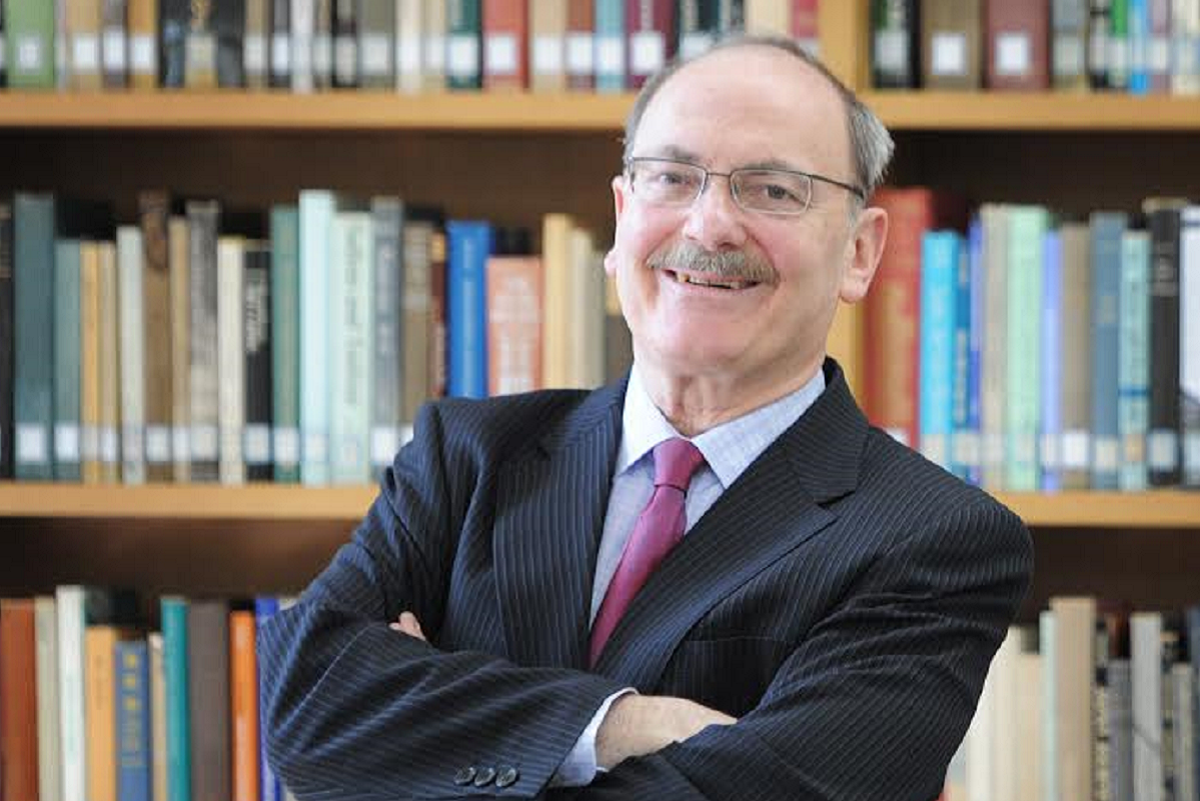The COVID-19 pandemic will change the world in both socio-economic and geopolitical senses. Humankind has learned the necessity of stockpiling medical equipment and the importance of monitoring social contacts of infected people. However, the world will not recover from the disease without an effective vaccine. Even then, the consequences of the pandemic will be evident until 2024. Dr. Kent Calder, Vice Dean for Faculty Affairs at Johns Hopkins University, director and professor of the Edwin O.Reischauer Center For East Asian studies, shared his vision with Apostrophe.
- What are the key lessons we have learned from the COVID-19 pandemic?
- We have learned that such a pandemic can be truly global, and have far-reaching destructive implications. First and foremost, the economy suffers from massive unemployment, a decline in economic growth, and structural transformation. The pandemic accelerates the shift to online activities, while airlines, hotels, tourism, and traditional commerce are suffering disastrous losses.
Secondly, changes are taking place in medicine - the pandemic has shown imperative for medical supplies, hospital capacity, testing capacity, and prior planning.
Thirdly, there are changes in social life - the society had to demonstrate a quick response and a readiness to observe the social distance.
- However, COVID-19 is not a completely new phenomenon. We have already faced SARS, MERS, and the EBOLA virus disease. What is the difference between the current pandemic and those outbreaks?
- First, COVID-19 is truly a global pandemic, whereas the others were primarily regional.
Secondly, it has fundamentally affected the Western industrialized nations, in particular the United States. The US and other G-7 nations, including Russia and most of Europe, were largely exempt from the previous recent pandemics.
Thirdly, COVID-19 has lower morbidity (death rates) than the others but is difficult to identify in its early stages. It is highly contagious, that is why it is difficult to contain it geographically - in a certain limited area.
- They say that the rapid spread was facilitated by well-developed air service between countries, popularity, and availability of tourism.
- Yes, it is most likely spreading faster and more widely due to travel. The problem is compounded by the disease’s insidious characteristic — it can be spread by asymptomatic people who may not even know they are infected.
- Why these epidemics occur, and how can we prevent them?
- Among the reasons is the transmission between animals and people. This leads to new diseases that people are not immune to. Another reason is globalization. It makes it easy for diseases to spread to areas where people have no immunity.
Pandemics can be prevented by learning from lessons of the past, for example about SARS, as they did in East Asia. It is also very important to respond to the threat quickly. It is necessary to have adequate medical equipment, a reserve of various medical devices, to closely monitor the transmission of viruses between countries, and to track the transmission from person to person using advanced digital devices.
- Why is it difficult to develop a vaccine against COVID-19?
- There are several obstacles. First, there is a lack of international cooperation. China was slow to report human transmission and to stop its tourists from spreading the virus abroad. China identified the genome soon after admitting the prospect of human transmission and shared that information. However, the US and China have found subsequent cooperation difficult.
Secondly, medically speaking, mutations or the existence of different strains of the virus could create complexity. Therefore, there may be problems on the part of the immune response - it is not clear how long immunity due to vaccination would prevail, and for whom. For example, what will be the difference between young people and older people.
The third problem is safety and legal issues. Any vaccine can have negative side effects. They must be identified and neutralized. This requires extensive and scientifically rigorous testing, which takes time. If companies fail to consider and identify side effects, they could be legally liable in many nations, with huge financial implications that must be considered.
The fourth obstacle is the logistics of supply. A large part of the world's 7 billion people may need the vaccine. Many of them will not be able to pay for it. It will also take time to produce the vaccine.
There is also the notion of a "net result" - any safe and effective vaccine will bring great benefit and relief to the world, but it will take time for the positive consequences to become truly visible.
- In your opinion, how will the world emerge from the pandemic, and what consequences it's going to face?
- The recovery process will be gradual. Keeping social distancing and contact tracing is very important in the initial stages.
Without an effective vaccine, there will be no full recovery. As a matter of urgency, the vaccine will be available by the end of 2020. Its distribution will take time, especially in developing countries. Likely, the world may not fully escape effects until 2023 or 2024.
The world will profoundly change in socio-economic dimensions, with on-line distribution and communication becoming much more prominent.
In geopolitical terms, Northeast Asia will grow more prominent, but the result will not simply be the rise of China. I think Japan is unrealized potential, given its economic size, large national savings, and the relative stability with which it is going through the current crisis. South Korea and Taiwan are also coping with the crisis very well, and their economic growth remains stable. Viet Nam, Malaysia, and Singapore - South Asian countries - had largely avoided the coronavirus problem, except for guest workers, who were still largely isolated.
As for China, there will be greater interdependence between China and Europe, which will make significant implications for international policy affairs. Tensions between Washington and Beijing will help Taiwan's economy.






